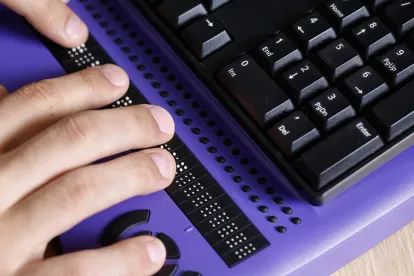On Feb. 15, the U.S. House of Representatives passed the ADA Education and Reform Act (H.R. 620). H.R. 620 is intended to address the increasing number of lawsuits filed under Title III of the Americans with Disabilities Act (ADA), particularly by serial plaintiffs, while also fostering education regarding compliance and encouraging efficient and cost-effective dispute resolution. Its passage in the House is significant given that multiple prior similar bills were never even reported out of committee.
H.R. 620 would require that individuals seeking to bring claims under Title III of the ADA with respect to alleged barriers to access in physical places of public accommodation first provide the business owner with specific notice regarding the alleged barriers prior to bringing suit. The business owner is then afforded 60 days in which to respond to the pre-suit notice and 120 days to remove or “make substantial progress” in removing the alleged barriers. The pre-suit notice must specify the following:
- The alleged barriers in the facility (specific enough for the owner or operator to identify them), along with the specific sections of the ADA allegedly violated
- The circumstances under which the individual was actually denied access to a public accommodation; including property address
- Whether a request for assistance in removing the barrier was made and
- Whether the barrier was permanent or temporary
In addition to requiring pre-suit notice, the bill also would require that the U.S. Department of Justice, which enforces Title III, develop a program to educate state and local governments and property owners about the ADA’s accessibility requirements, in order to facilitate compliance with the ADA. The program would be developed in consultation with both property owners and representatives of the disability community, and may include training of professionals, such as Certified Access Specialists.
H.R. 620 also directs the Judicial Conference of the United States to develop, in consultation with both property owners and representatives of the disability community, a model program to promote use of alternative dispute resolution mechanisms in Title III cases involving architectural barriers. This provision of the bill is an attempt to promote cost-effective resolution of Title III cases and is based on approaches that federal courts – particularly those in jurisdictions with high incidence of Title III filings, such as Florida and California – have employed in Title III cases through local rule, scheduling orders, or other case management procedures. The mechanisms contemplated for the model program include a stay of discovery during mediation and expedited methods for determining relevant facts.
H.R. 620 passed the House with bipartisan support, by a vote of 225-192. Twelve Democrats voted in support of the bill. Whether HR 620 will pass the Senate and ultimately be enacted into law is unclear. It nonetheless may presage further developments at the state level, as some state legislatures have already enacted or have introduced legislation intended to curb the proliferation of accessibility lawsuits.




 />i
/>i

